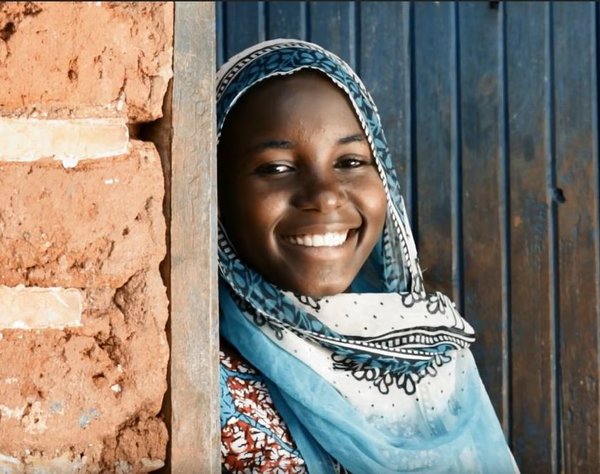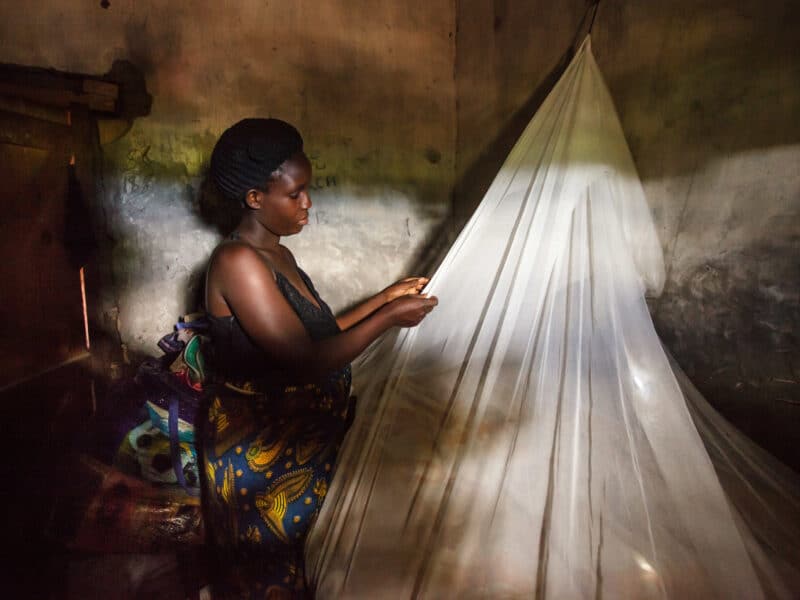
A motorbike drives by on a dirt road, while an aerial shot pans out to see a rural health clinic in Tanzania. The narrator comes in, “There are people who spend their time working hands-on in the fight against malaria. You can find them in research labs and health care facilities. You can also find them in schools. To protect Tanzanian families and communities from malaria, school children and health care workers have become primary drivers for insecticide-treated nets for malaria prevention efforts.”
This scene is from a new video from the Johns Hopkins Center for Communication Programs’ VectorWorks project being released on World Malaria Day. It focuses on Tanzania and its unique program that distributes insecticide-treated bed nets (ITNs) for malaria prevention in schools countrywide in addition to the more commonly used distribution through the health facilities. VectorWorks is funded by the President’s Malaria Initiative (PMI) and works with the Government of Tanzania to maintain a successful school and health facility ITN distribution model that helps sustain universal coverage.
Treated bed nets protect people from being bitten by the mosquitoes that carry the parasite that causes malaria as they sleep and studies have shown sharp declines in malaria cases when people use their nets.
The video centers on the main types of people who VectorWorks and the Tanzanian government rely on to help them prevent malaria: the new mother, the student, the health worker and the logistics officer. Last year alone, VectorWorks and the government were able to distribute more than three million treated bed nets through schools and 500,000 to pregnant women and children under the age of one in health facilities.
The treated bed nets distributed at schools and in health facilities ensure that the people who are most vulnerable to malaria — pregnant women and children — are covered. In addition, they provide coverage for those in the household who did not receive treated net during other mass campaigns.
Asia Idd, a student from Buhigwe, Tanzania, explains the excitement in her household when she brought home a net: “We received the nets last week and when I took mine home, my parents received me with great joy and excitement and they immediately set it up. Ever since we received the nets, we’ve made it a point to sleep under the nets, as a family, to protect ourselves against malaria.”
The video shows the amazing beauty of Tanzania and the people who play an important role in helping reduce the malaria burden. “The threat of malaria remains, but through these continuous efforts, strong partnerships, and innovative ideas, the future of malaria control in Tanzania is looking brighter than ever,” the narrator says.
View the entire video here. Watch these short videos to learn more about those who help protect Tanzanians from malaria:
- Schoolchildren: Change Agents for Malaria Prevention
- Health Workers: The Community Role Model for Malaria Prevention
- Simba Logistics: A Journey That Saves Lives
- Mother and Child: Protecting Pregnant Moms and Babies from Malaria





